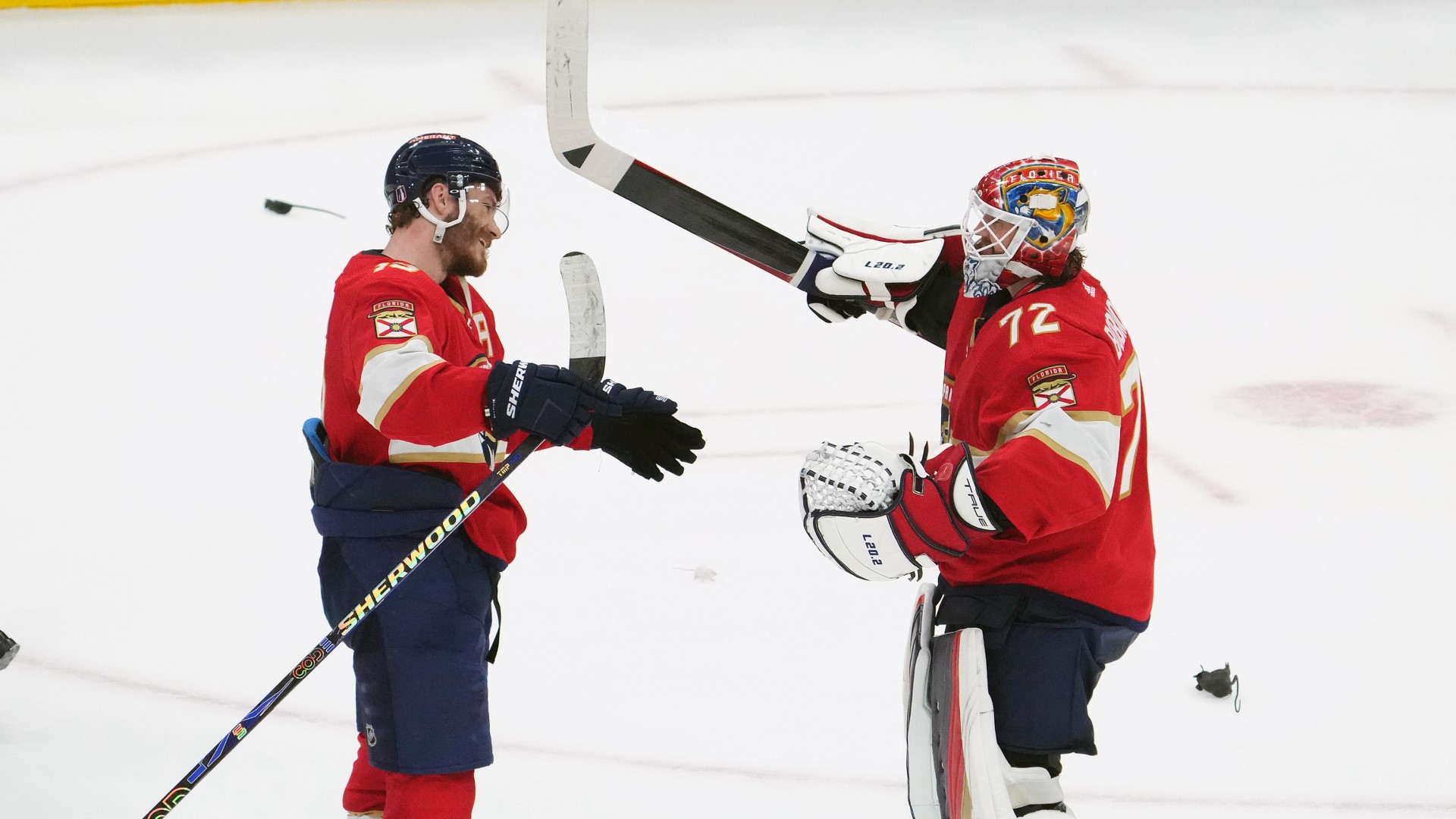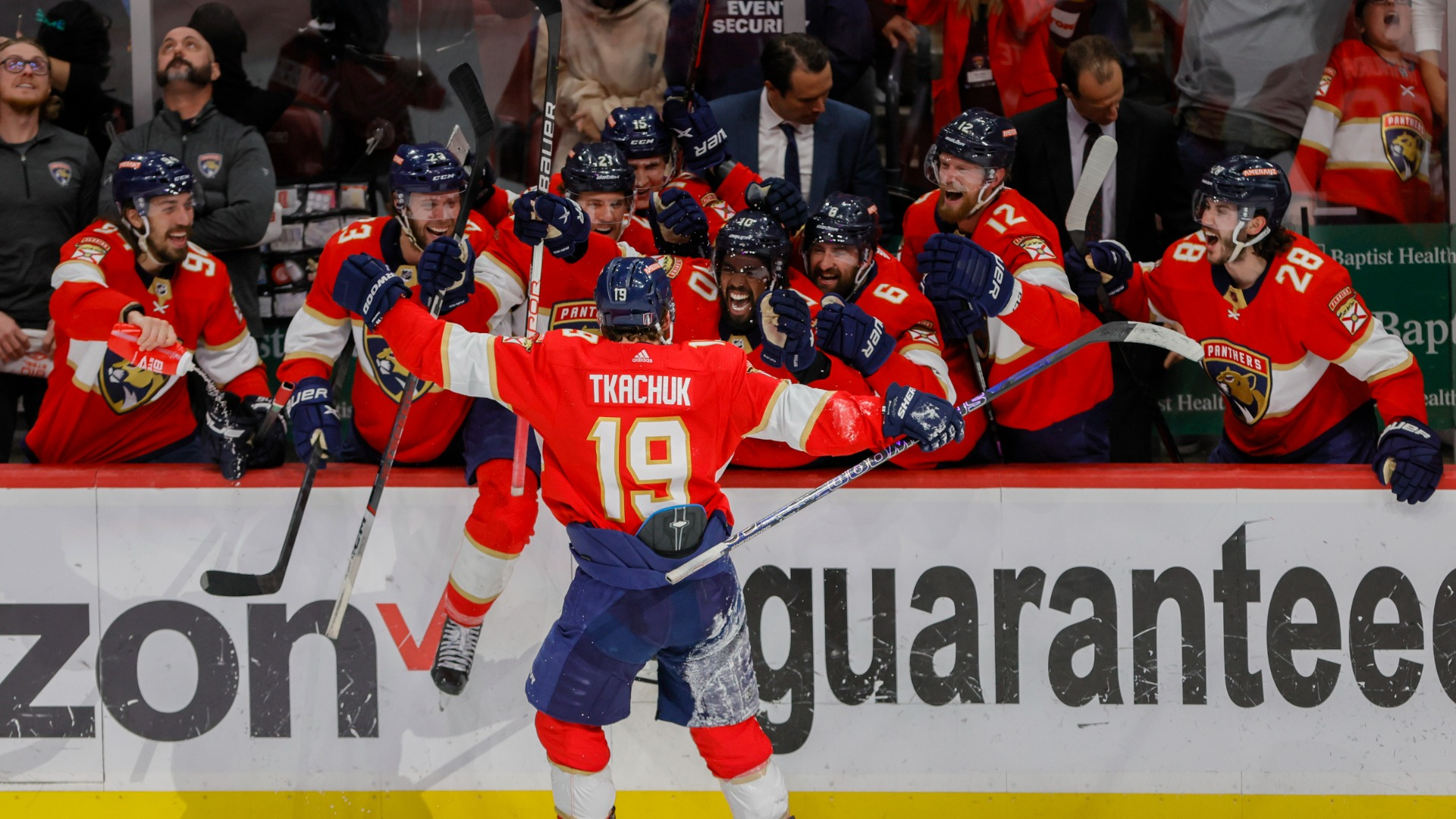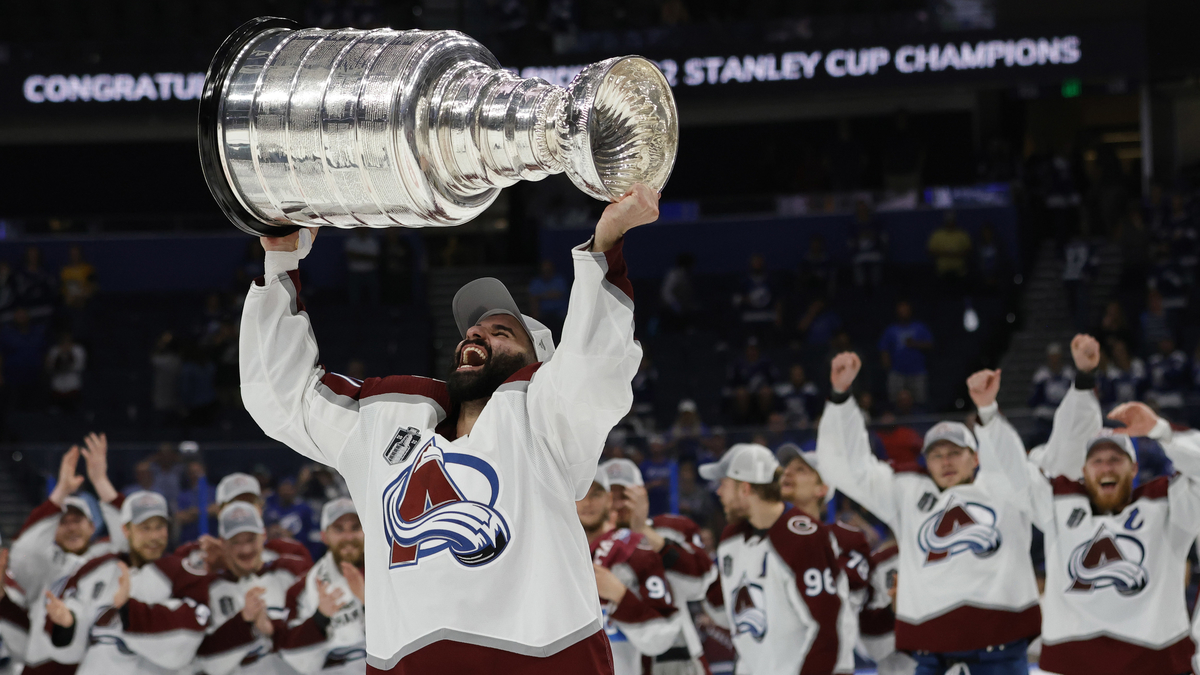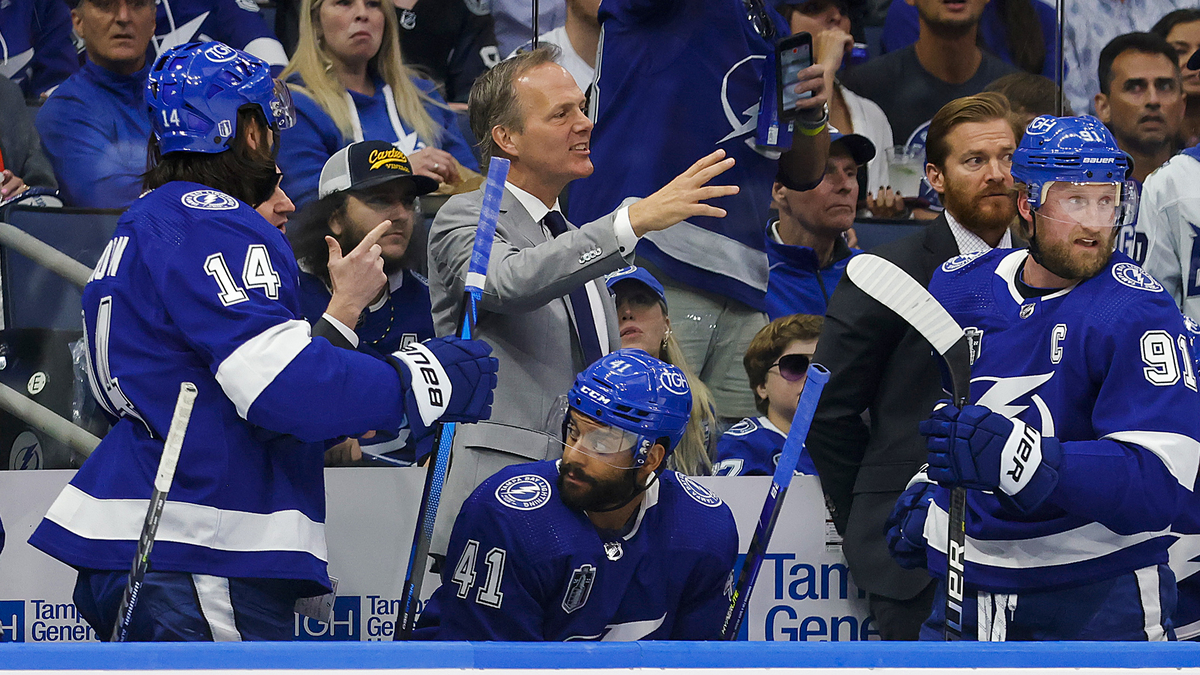The Bruins are back in the Stanley Cup Final and about to play hockey in June for the first time in franchise history.
After overcoming seven-game challenges against Montreal and Tampa Bay, sandwiched around a sweep of the Flyers to avenge last year’s collapse, the Bruins now have just one team left standing in the way of bringing the Cup back to Boston for the first time since 1972.
That team happens to be the Vancouver Canucks, the Presidents’ Trophy-winning Canucks that led the league is just about every significant statistical category during the regular season and are fresh off a five-game dismantling of Joe Thornton and the San Jose Sharks. Hey, nobody said ending a 39-year championship drought was going to be easy.
But the Bruins have been able to overcome every obstacle they’ve faced to this point, so they’re not about to concede anything to the Canucks now. So how do the Bruins stack up against Vancouver with hockey’s ultimate prize on the line? Here’s the Tale of the Tape.
Offense:
The Bruins won’t be seeing double when they face the Canucks. It will just seem that way. Vancouver boasts the most talented set of twins on ice in Henrik and Daniel Sedin. Daniel Sedin led the league in scoring with 104 points in the regular season, while Henrik Sedin holds the top spot in the playoffs with 21 points in 18 games. Daniel is the finisher (41 goals in the regular season) and Henrik is the playmaker (75 assists in the regular season, plus 19 more in the playoffs), but both can hurt a defense in a number of ways.
Ryan Kesler (41-32-73 in regular season, 7-11-18 in playoffs) would be the No. 1 star on most teams, but he plays second fiddle to the twins in Vancouver. He plays it like a maestro, though, and is also one of the best defensive forwards in the league. Alexandre Burrows adds some sandpaper, as well as scoring touch to the top line, while the likes of Mason Raymond, Chris Higgins, Jannik Hansen and Maxim Lapierre supply some secondary scoring. The Canucks miss the injured Mikael Samuelsson, but are expecting to get Manny Malhotra back from a serious eye injury.
The Bruins have a more balanced attack and arguably better depth up front, but lack the star power of the Sedins. Still, the top line of David Krejci (10-7-17), Nathan Horton (8-9-17) and Milan Lucic (team-high 30 goals, 62 points in regular season) has been rolling the last two rounds. Krejci had a hat trick in Game 6 against Tampa and set up Horton’s game-winner in Game 7, the second Game 7 winner Horton has scored while playing in his first NHL playoffs this spring. Lucic hasn’t raised his game this year the way he has in past postseasons, but he showed some flashes late in the Tampa series, and the Vancouver native is sure to be determined to put up some big numbers in his hometown.
The second line of Patrice Bergeron, Brad Marchand and Mark Recchi has provided solid two-way play all season, Tyler Seguin added a spark to the third line with Chris Kelly and Michael Ryder at the start of the Tampa series and Rich Peverley, Daniel Paille and Gregory Campbell are far better than what you’ll find on just about any other fourth line in the league.
Advantage: Canucks
Defense:
The Bruins have a stable top six led by Norris Trophy finalist Zdeno Chara, who has come up huge throughout the postseason. After losing the first two games against Montreal, Claude Julien reshuffled the defense pairings and hit upon a solid combination with Dennis Seidenberg moving up alongside Chara. Seidenberg logs huge minutes, providing solid defense and physical play to form a dominant shutdown pair with Chara, though they’ll have their hands full trying to shut down the Sedins.
Andrew Ference has been one of the unsung heroes of this playoff run, providing a steadying presence in the second pairing alongside Johnny Boychuk, who has been inconsistent at times but remains a valuable contributor. Adam McQuaid is another solid stay-at-home defender on the third pair with Tomas Kaberle, who has been under fire since his arrival from Toronto due to the power play’s ongoing struggles and his occasional lapses in his own zone, though he did play much better in the Tampa series.
The Canucks boast a deep blue line with nine NHL-caliber defensemen all capable of playing. They’ve needed that depth, as Vancouver has dealt with a series of injuries on the blue line this postseason. Christian Ehrhoff and Aaron Rome are questionable for this series, but Keith Ballard and Christopher Tanev have stepped in ably, and the Canucks still have former Bruin Andrew Alberts waiting in the wings if needed.
In the top four, Kevin Bieksa has been a force this postseason, both offensively (5-4-9 totals) and physically (62 hits, 37 PIMs), while Alexander Edler, Dan Hamhuis and Sami Salo are all capable puck-movers as well.
Advantage: Bruins
Goaltending:
There have been a few bumpy outings along the way, but Tim Thomas has once again answered his critics, this time those who had doubted his ability to match his stellar regular-season performance in the playoffs. He’s stolen several games for the Bruins so far in this run, and came up with a huge effort with a shutout of the Lightning in Game 7 of the conference final. He was named a Vezina finalist after posting a 35-11-9 record with a league-leading 2.00 GAA, an NHL-record .938 save percentage and nine shutouts in the regular season, and is 12-6 with a 2.29 GAA, a .929 save percentage and two shutouts in the postseason.
After some shaky play in the opening round that saw him serve as a backup to Cory Schneider for a game against the Blackhawks, Roberto Luongo has come on strong. Like Thomas, Luongo is a Vezina finalist, and he’s played like it the last two rounds, most notably in his 54-save performance in the Game 5 double-overtime win to eliminate the Sharks. His numbers mirror Thomas’ at 12-6 with a 2.29 GAA, a .922 save percentage and two shutouts.
Advantage: Bruins
Special teams:
While the differences in just about every other category are minute, the Canucks hold a huge advantage when it comes to special teams. The Bruins are a dominant team at even strength, leading the league in 5-on-5 scoring with 177 goals in the regular season and continuing that trend in the postseason. Boston has more even-strength goals (53) than Vancouver has total goals (50). But the Bruins have been simply horrid with the man advantage, converting just 5 of 61 power plays (8.2 percent). The Canucks, on the other hand, are 17-for-60, an impressive 28.3 percent success rate.
The penalty kills have been relatively even, with the Bruins allowing 13 goals on 63 chances (79.4 percent) and the Canucks giving up 14 goals on 72 opportunities (80.6 percent), though Boston was burned for three straight power-play goals by Tampa in Game 6. Still, with the decided advantage Vancouver has on the power play, the Bruins will be in big trouble if they spend much time in the box in this series.
Advantage: Canucks
Coaching:
Claude Julien can’t seem to shake the unwarranted criticism that has dogged him all season, or garner the kind of credit he deserves, but he’s been pushing all the right buttons this postseason. He still hasn’t found a solution to the power play’s woes, but he’s put on a coaching clinic in just about every other area.
He’s used his timeouts wisely, most notably in Game 4 against Montreal to settle his troops after falling down 3-1. He’s made the lineup adjustments when needed, such as putting Chara and Seidenberg together to solidify the defense. He’s shown patience when necessary, and was rewarded for sticking with Ryder and Kelly after their slow starts against Montreal. He’s maximized what he’s gotten out of players such as Peverley by moving him around to different lines for extra shifts. And he’s made the adjustments necessary to beat the Canadiens’ stifling defense and Tampa’s 1-3-1 trap.
Alain Vigneault has enjoyed similar success this spring in guiding the Canucks to the Final. Like Julien, Vigneault got his first head coaching job in the NHL with Montreal, and like Julien, he had struggled to get beyond the second round of the playoffs before this year. He lost in the second round in the only season he made the playoffs in his three years with the Habs, and had three second-round losses and a year without qualifying for the postseason in his first four years behind the Vancouver bench. The last two of those series losses came at the hands of the Blackhawks, but Vancouver survived a scare from Chicago this postseason. The Canucks defeated the Blackhawks in overtime of Game 7 in the first round, after nearly blowing a 3-0 series lead, to finally exorcise those Chicago demons.
Advantage: Bruins
Intangibles:
The Bruins have managed to stay healthy for the most part this postseason, losing just Chara for a game due to dehydration, McQuaid for two with a neck injury and Bergeron for two with a concussion. All three of them are back and Julien will have his full roster at his disposal to start the series.
The Canucks are more banged up, but have had some extra time to heal after finishing their conference final in five games. They’re expecting to get forward Manny Malhotra back, and could also have defensemen Christian Ehrhoff and Aaron Rome back during the series.
The Canucks have the home-ice advantage after posting the best record in the league in the regular season, and they’ve used that advantage well so far with a 7-3 record at Rogers Arena in the playoffs. But the Bruins have been a strong road team all season, actually posting a better record away from the Garden during the regular season. That included a 3-1 win in Vancouver on Feb. 26. The Bruins have been better at home in the playoffs though, as they are also 7-3 at the Garden and just 5-3 on the road. If the series goes the distance, the Canucks will be on home ice in Game 7.
Speaking of going the distance, travel could be a factor in this series with the teams situated so far apart. Both teams will be making the same cross-continent trips, but the Canucks are more accustomed to that playing in the Western Conference. Vancouver will face more pressure, though, as both the favorite and as Canada’s best hope in years of ending the country’s Cup drought. No Canadian team has won since Montreal in 1993, and it won’t be easy for the Canucks to deal with the expectations of an entire hockey-crazed nation.
Advantage: Canucks
Overall:
This is a far more even matchup than some may think. The Canucks have the edge in star power and special teams, but the Bruins have the depth and defense to counter that, plus the biggest potential difference maker in Thomas. The head tells me the Canucks should win this one, but the heart says it’s awfully hard to pick against the Bruins after all they’ve done to get to this point. Hockey is a game of heart, so I’ll be sticking with intuition over logic and call for Boston’s Cup drought to finally end.
Prediction: Bruins in 7



